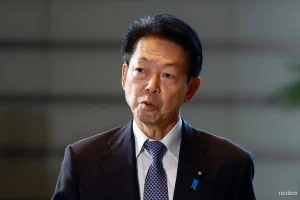We speak with Kenichi Nakano about doing business in Japan. He begins:
"Although household wealth was adversely affected by the burst of bubbles in the 1990s and the financial crisis occurred in 2008, the population in Japan is shrinking and ageing, yet Japan still has a population exceeding 126 million as of 1 January 2019 and household financial assets were JPY1,859 trillion as of 30 September 2018. Since the rule of law is well respected, you can assume investment in Japan is solidly protected by law. It is a shame that foreign investors do not take advantage of these benefits."
What common misconceptions do you find that international clients have about doing business in Japan?
Foreign investors may think doing business in Japan is challenging, but there will be no country where the business is not challenging. A good example may be addressing the criticism that Japan does not import enough, especially American cars. This may ring true for American car companies, however, Japan imported 351,364 cars during the year from 1 April 2017 to 31 March 2018. 229,000 out of the 351,364 imported cars were German. German cars boast the reputation of being good quality and prestigious. Readers may be surprised to know that there is no tariff on imported cars and German car manufacturers thus took advantage of the friendly Japanese market and increased the sale by developing a nationwide network of services and advertisements.
One big caveat regarding employment regulations relates to unilateral termination of employees.
Can you expand on the requirements clients must meet, in order to expand in Japan?
Quality products and quality services would be the requirements.
What are the regulations regarding trade?
Comprehensive and Progressive Agreement for Trans-Pacific Partnership (TPP11) went into effect on 30 December 2018 and EU- Economic Partnership Agreement came into effect on 1 February 2019. This will substantially improve the business environment in Japan for foreign investors or companies doing business in Japan.
What are the regulations regarding employment?
One big caveat regarding employment regulations relates to unilateral termination of employees. A unilateral termination refers to the situation where an employer terminates an employment contract unilaterally against the employee's will. Generally speaking, an employee working in Japan is afforded strong protection under Japanese employment law, and therefore, it is very difficult for an employer to lawfully unilaterally terminate the employment of a regular employee.
Communication with employees and customers may be challenging, if either the client or counterparty does not speak Japanese or English.
There is generally no concept of "at will" employment in Japan, whereby an employer can terminate or dismiss regular employees without cause. Instead, employers must first consider whether any grounds for unilateral termination exist under the employment contract with the employee or the employer's work rules. Even if such grounds exist under the employment contract or work rules, an employer must also assess whether the unilateral termination of an employee is legally permissible under Japanese employment law.
Despite any express term in the employment contract or work rules, the unilateral termination of employment by an employer will be deemed an "abuse of right" and determined null and void under Japanese employment law, unless the employer can demonstrate that such termination is made for a strong and justifiable reason or cause, or "just cause".
Do clients face any difficulty when expanding their business in Japan?
Communication with employees and customers may be challenging, if either the client or counterparty does not speak Japanese or English. However, this can be overcome by finding good managers conversant in both languages and culture.
Kenichi Nakano | Partner
E: kenichi.nakano@amt-law.com
Anderson Mori & Tomotsune
www.amt-law.com
Otemachi Park Building
1-1-1 Otemachi, Chiyoda-ku, Tokyo 100-8136, Japan
T: +81-3-6775-1012 | F: +81-3-6775-2012
Having graduated from the University of Tokyo, passed the bar exam and completed the training at the Judicial Research and Training Institute, Kenichi Nakano was admitted to the bar and joined Anderson Mori & Rabinowitz in Tokyo in 1980. Anderson Mori & Rabinowitz is a firm established by American lawyers in 1952 but has been a Japanese law firm admitted to practice in Japan. Having practised for three years, Kenichi was admitted to and studied at New York University, School of Law from 1983 to 1984 (Master of Comparative Jurisprudence). She was admitted to New York Bar in 1985 and thus spent some months at Sullivan & Cromwell in New York and Brown & Bain in Phoenix as a foreign legal trainee and returned to Anderson Mori & Rabinowitz in 1986. She became a partner in 1989. After the retirement of Mr Rabinowitz and a merger with another firm, Anderson Mori & Rabinowitz is now Anderson Mori & Tomotsune having 517 professionals including 467 Japanese lawyers. Kenichi has been advising mainly foreign clients and Japanese subsidiaries or branches of foreign clients with respect to the laws concerning doing business in Japan, which spans from the incorporation of a Japanese subsidiary, daily advice, litigation and winding up.




















